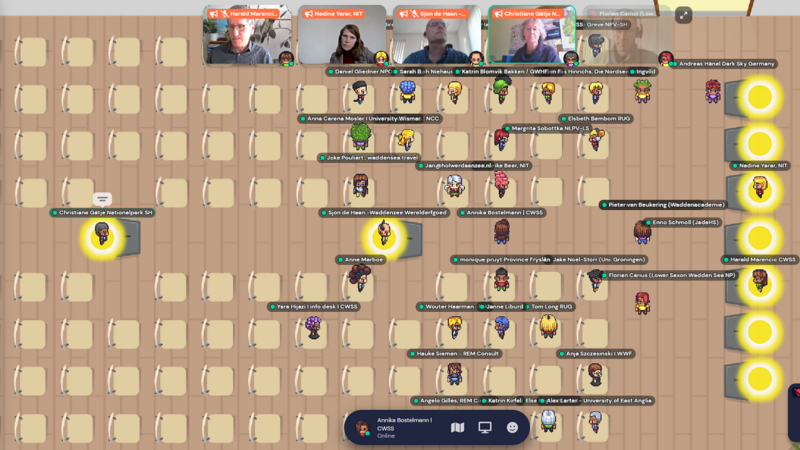Sustainable enterprise and tourism insights at core of 3rd PROWAD Link Forum

On 22 March 2022, over 40 stakeholders from the Wadden Sea, Geiranger Fjord and North Norfolk Coast met online for the Third PROWAD Link Forum. The half-day event gave room to discuss several topics of sustainable development at the core of the Interreg project “PROWAD Link – Protect & Prosper”, which will be concluded in 2022. The Forum was organised by the Common Wadden Sea Secretariat, lead partner of the project.
The meeting was divided in two parts: presentations on key findings within the project and group discussions. The first presentation focused on sustainable entrepreneurship. Tom Long (University Groningen Campus Fryslân), Else Ragni Yttredal (University NTNU Aalesund) and Anne Husum Marboe (Danish Wadden Sea National Park) talked about what we can learn from case studies of sustainable enterprises as well as products and services. A new web portal with comprised information for small and medium-sized businesses (SMEs), students and researchers was introduced.
Nadine Yarar (NIT Kiel) gave insights from the Trilateral Wadden Sea Visitor Survey 2020/21. The survey is the first visitor study conducted in the three Wadden Sea states simultaneously, led by the Schleswig-Holstein Agency for Coastal Defence, National Park and Marine Conservation / National Park Authority. Its key findings are soon to be published on the PROWAD Link website.
The question on whether we have over-tourism in the region was raised by Anja Szczesinski (WWF Germany), who presented the first key findings of the “Wadden Sea Tourism Value Radar”, to be published in summer. Anja elaborated how the radar will help destination marketing organisations, municipalities and nature organisation to regularly check their limits of acceptable change on tourism with a minimal effort.
The topics of light pollution and Dark skies was introduced by Daniel Gliedner from Nature Park Our (Luxemburg). Gliedner presented the activities and achievements of the Nature Park within the Interreg Europe project "Night Light". Afterwards, Gliedner, together with Dr Andreas Hänel and Jake Noel-Stour (University of Groningen), looked at nocturnal darkness as a helper for nature and communities and led an exchange on dark sky parks and their development. Angelo Gilles (REM Hamburg) led the audience through the complex field of project funds in the EU programme period 2021 – 2027. and introduced a soon-to-be-released funding guide, with several examples how to match project ideas in specific fields with potential funding programmes at EU level and at national level.
The participants then joined discussion groups on the topics of innovative product and service development, World Heritage and its influence on well-being and health tourism, brand activation and opportunities and challenges of dark sky in relation to protected areas.
A quick survey on the forum revealed that the participants valued the meeting as helpful and many of them were interested to continue the cooperation with the project, among others on the topics dark sky, well-being/health tourism and funding opportunities. Nevertheless, the participants also remarked that a virtual meeting cannot replace the opportunities of exchange an in-person meeting can offer.
